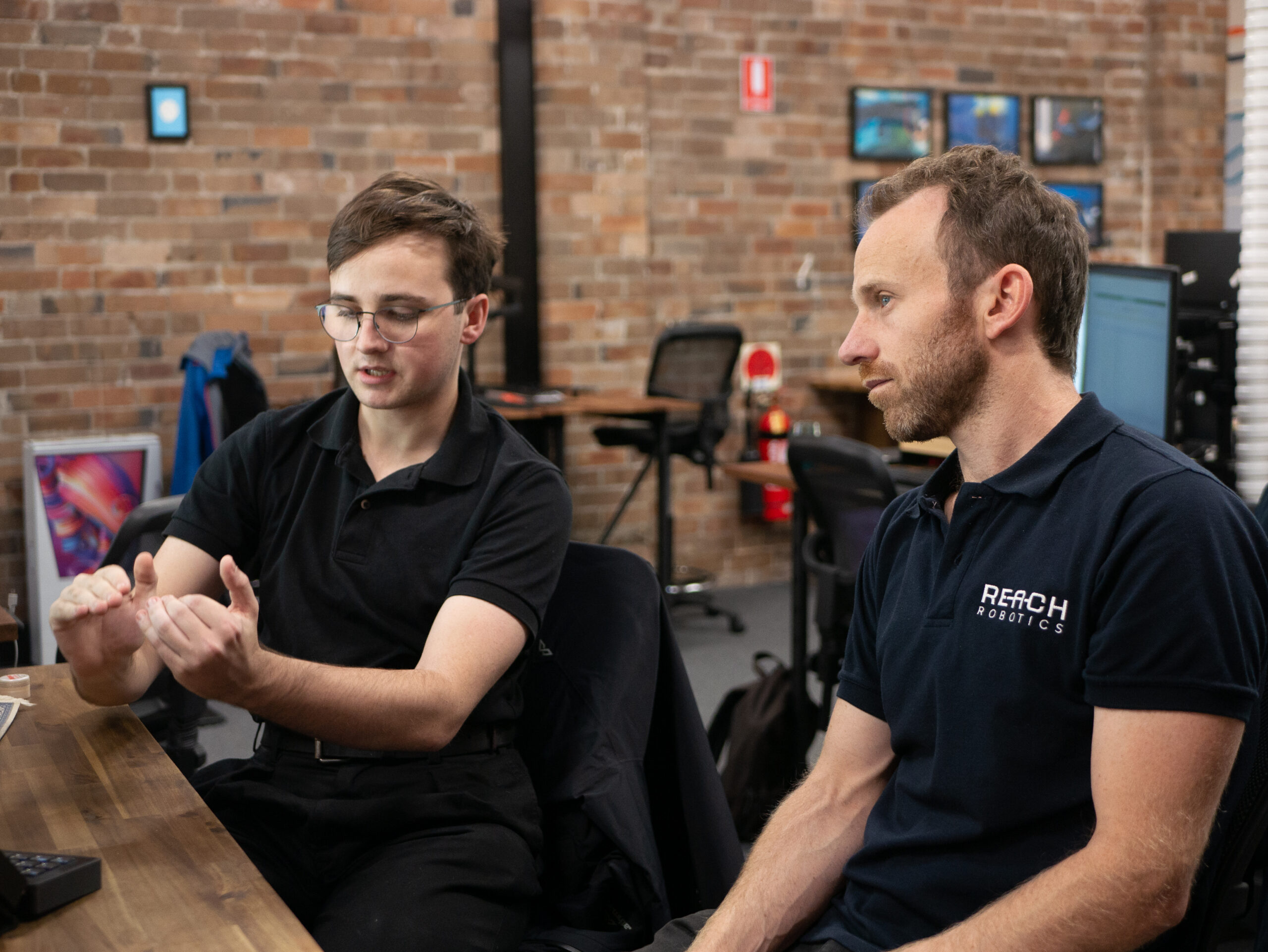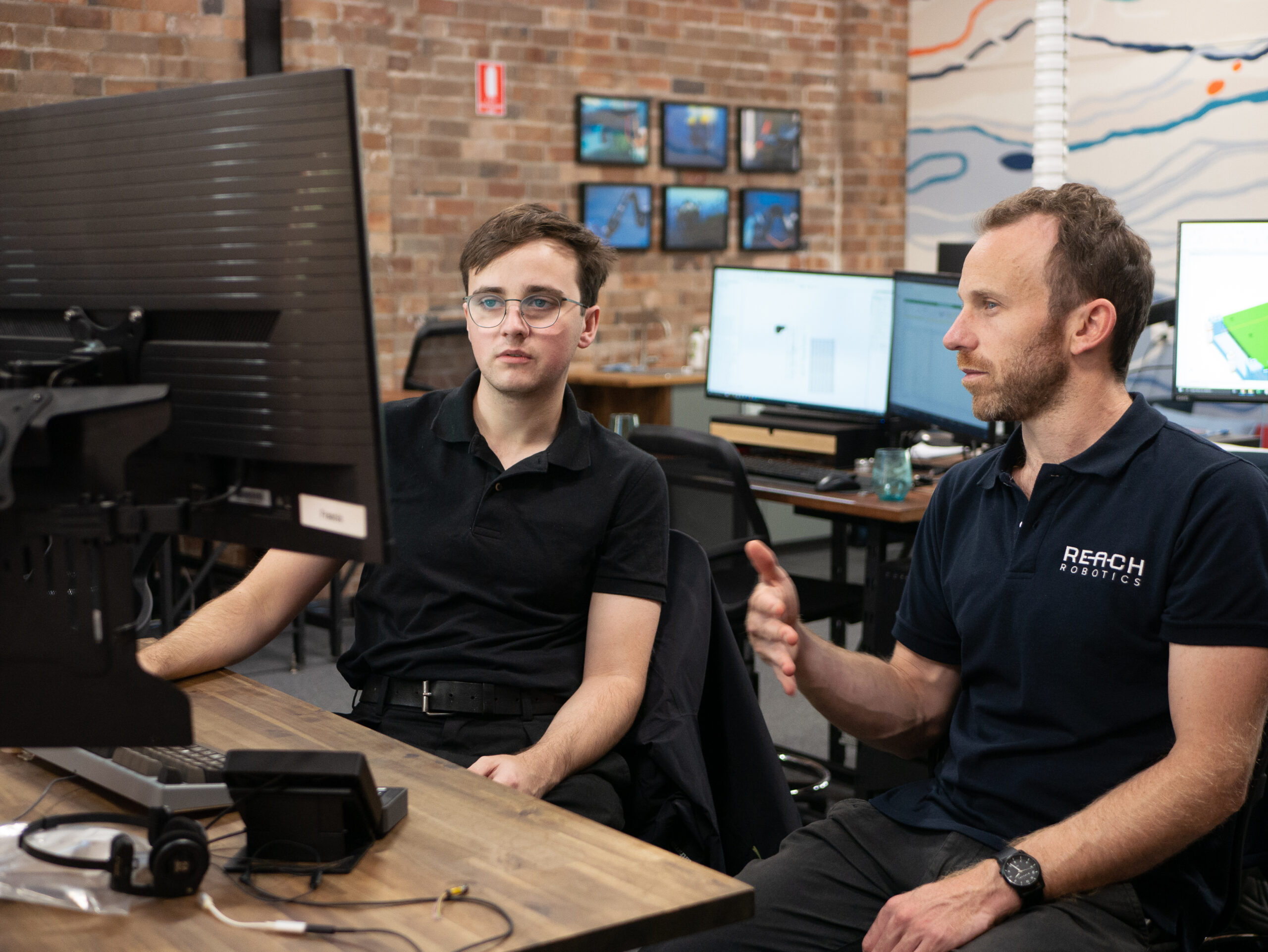As an advanced technology innovator, Reach Robotics’ Mechanical Engineers play a critical role in our hardware focused business. Mechanical design is our core discipline, and as such, our engineers are involved from the outset of product design and development, through to testing theories, refining concepts, and optimising design.
Now at a critical juncture for our business’ growth and development, we are searching for a Senior Mechanical Engineer to join our team, advance our technology and continue driving our culture of innovation. To this end, we sat down with CTO and co-founder, Paul Phillips and Senior Mechanical Engineer, Francis McDonald to learn more about the opportunities, challenges, and unique attributes of mechanical design at Reach Robotics.

What does mechanical engineering at Reach Robotics entail?
Paul: Mechanical engineers at Reach Robotics need to have a passion for rethinking designs until they are the best they can be, looking into new technologies and approaches for solving complex problems. The role is exceptionally challenging, with assemblies consisting of many moving parts and requiring great optimisation for space and performance.
Francis: In terms of robotics design and subsea engineering, a lot of what we’re designing is cutting edge. To do well at Reach Robotics, we require a strong ability to think outside of the box to solve problems. Our assemblies are incredibly complex so having a good background in hands-on production is valuable.
How does the mechanical engineering role support the greater company vision?
Francis: With robotic manipulators as our core technology, product development is based around the vision of our primary mechanical design engineers. Any decisions made by those engineers will directly impact every team within the company. For example, mechanical choices define the performance that our Electrical Engineering team must meet, as well as methods of assembly and testing that our Production team will conduct, and finally the efforts made capture critical selling points of a product by our Sales and Marketing team.
Paul: Out products are inherently hardware driven and therefore rely on their mechanics to perform any part of their value. This makes the mechanical engineering role incredibly important for the success of our products and the company.

How does working as a Mechanical Engineer at Reach Robotics differ from similar roles at other companies?
Francis: Reach Robotics is unique in its small and fast-moving team. Although this has some drawbacks, the team’s agility when developing new products would be uncommon for most subsea hardware and defence technology companies. Although we’ve grown beyond a start-up, the fast pace and alacrity from those early days still remains.
We occupy a fairly niche space in the market, with no other company to date developing high performance manipulators intended for these environments. While there’s definitely an overlap in knowledge and skills required with other companies, many of the problems I’m exposed to are unchartered and require pioneering solutions.
Paul: The design of robotic manipulators for field robotics presents engineering challenges and solutions not found elsewhere. Our assemblies have many constraints – they need to be light and compact while still running at the highest possible performance under the harshest of environments. The mechanics are tightly integrated with electronics and software requiring close cooperation with other disciplines.

At Reach Robotics, we pride our mechanical engineers for their creative solutions to complex problems and passion for rethinking and reworking to optimise design and functionality. If you’re a skilled Senior Mechanical Engineer with experience in subsea hardware or field robotics, please get in touch with us to discuss opportunities and employment. In seeking the best candidate, we are open to international applicants considering relocation to Australia.
